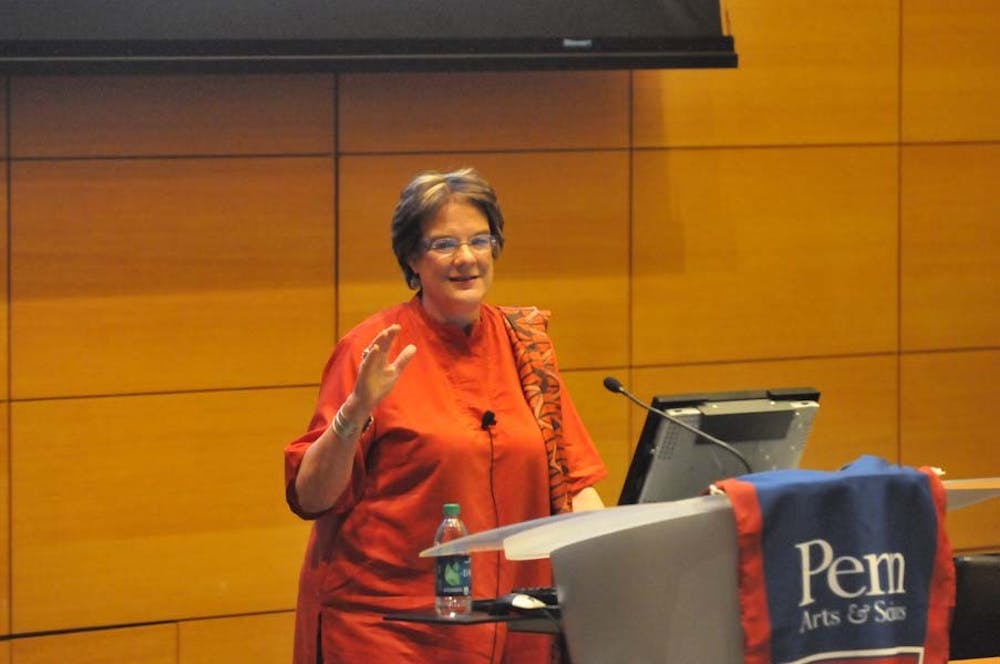Molly Melching — founder and executive director of Tostan — brought greetings Tuesday afternoon from her friends in Senegal before giving an inspirational talk on her humanitarian work in West Africa.
Melching was the keynote speaker for the Philosophy, Politics and Economics Program’s 13th annual Goldstone Forum in Huntsman Hall. Every year, the forum hosts a leading figure in business, politics and academia as part of the Steven Goldstone Fund.
Melching has lived and worked in Senegal since 1974. She founded Tostan — meaning “breakthrough” in Wolof, a West African language — in 1991 as an empowerment program partnering with local villages to facilitate community-led social change. Forbes Magazine has recognized her as one of the 10 most important women in the world in the field of women’s rights.
Tostan is a three-year program using traditional culture to bring about modernity without eroding the deeply rooted values of African culture. The first year is called Kobi, which means “preparing the soil for planting.” Participants in the program are taught human rights, responsibilities, hygiene and health.
“We realized that we could not talk to women about health without them understanding their human rights,” Melching said.
The last two years of the program are called Aawde, which is Fulani for “planting the seed.” During this time, the program teaches literacy, math and management skills that the villages will need for sustenance once they have completed Tostan.
Melching attributed the success of Tostan to the strategy of organized diffusion, a concept to which a member of the village had introduced her.
She recalled his advice, which ran that “if you want real change, you have to include everyone.” Using this strategy, participants in the program teach their own neighbors and hold village events. They also reach out to their family members across the country and around the world.
Tostan then helps facilitate inter-village meetings, and at the end of the program, declarations are decided together to abandon practices such as female genital cutting and child marriage.
Melching said that Tostan begins as a holistic program to educate people, but in that process, they bring about such changes as systematic birth registration, improved health and, as of today, the abandonment of FGC in seven West African countries.
Once, Melching asked the people of Guinea Bissau, where FGC was deeply rooted in the culture, how they were able to abandon the practice so quickly. They responded, “We saw our relatives declaring to abandon FGC, and we never knew it was possible or that there was another alternative.”
First-year School of Education student Josh Cleveland, who lived in Ghana for eight months, was eager to hear about the realities of social reform in Africa.
“As a student in the International Educational Development Program, I wrestle with what development can and should look like,” he said.
Closer to the end of her lecture, Melching spoke about the importance of establishing trust in the community and using methods that maintain, rather than belittle, African values to promote empathetic development.
She added that, according to the Senegalese government, there will be a total abandonment of FGC using the Tostan approach by 2015.



